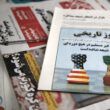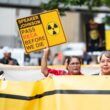Proceed, but with caution
By Khaled Toukan, November 1, 2012
In my second Roundtable essay I discussed my concerns that fuel banks might be used to pressure developing countries into forgoing rights guaranteed them under the Nuclear Non-Proliferation Treaty (NPT), even though the International Atomic Energy Agency (IAEA) has given assurances that the establishment of fuel banks will not diminish nations' rights. My colleague Ta Minh Tuan to a large extent shares these concerns, while Ramamurti Rajaraman does not. One thing on which we all agree is that fuel banks do deserve a chance to demonstrate how they will work in practice; their potential value in providing emergency supplies of reactor-grade fuel to emerging nuclear states should not be discounted. And I do believe, despite my reservations, that emerging nuclear states should encourage the concept of nuclear fuel banks.
I would also like to reemphasize my appreciation of and respect for the sincere, proactive role that the IAEA has played and continues to play for emerging nuclear states. Jordan, my own country, has benefited greatly from the programs and initiatives sponsored by the agency, especially those related to infrastructure development, regulatory compliance, and administrative and technical training. The agency's ability to assemble and deploy teams of world-renowned experts to participate in technical cooperation forums is very useful and impressive. I have great respect for what the agency does and what it embodies. Again, my reservations about the implementation of fuel banks are not related to the agency's intentions or capabilities.
But I remain concerned that, when a developing country someday develops a real need for emergency supplies of reactor-grade fuel, a number of nuclear weapon states might use the opportunity to pressure the developing country into forgoing some of its rights under the NPT. For this reason, I would argue that developing countries should not rely too heavily on international fuel banks for emergency supplies of reactor-grade fuel — especially because nuclear weapon states have been so crucial to fuel banks' funding and fuel supplies, and because some of those states retain undeclared policies that, in my opinion, are geared toward preventing developing countries from achieving complete, self-sustaining nuclear fuel programs.
In order to limit their dependence on fuel banks, emerging nuclear nations should consider diversifying their fuel suppliers, increasing their stocks of fuel and, when feasible, expediting plans to develop indigenous enrichment capabilities. I realize that it may not be practical or economically justifiable for countries with a limited number of nuclear power reactors to develop their own enrichment facilities. However, non-nuclear weapon states could forge alliances in order to develop a collaborative mechanism for low-enriched fuel supply. This would enhance energy security by ensuring reliable sources of low-enriched fuel and eliminating potential threats to nations' sovereign rights.
Meanwhile, to reduce concerns in a number of emerging nuclear states, it is imperative that the nuclear weapon states that have been heavily involved in the fuel banks' establishment do everything they can to ensure that fuel banks work as designed. As Ta has argued, fuel banks must be approached in a spirit of fairness and transparency, and behind-the-scenes political bargaining must be avoided.
Time will tell if fuel banks function as advertised. But if they do not — if developing nations that seek low-enriched uranium experience pressure to forego any of their rights — emerging nuclear nations might forge alliances among themselves in order to safeguard their sovereignty and inalienable rights.
Topics: Nuclear Energy
Share: [addthis tool="addthis_inline_share_toolbox"]














